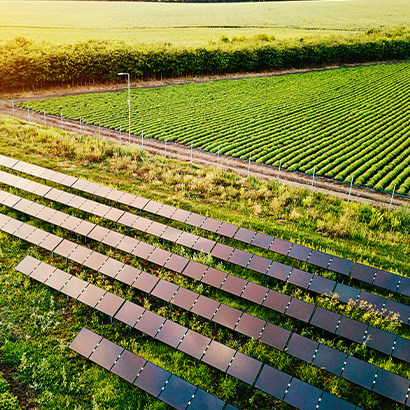
ESG - Sustainable Agriculture
In agriculture, sustainability is not a preference–it is a sign of vitality. Food manufacturers, farmers, and land investors across the globe who understand that have already begun to reap the benefits.
As in other industries that have prioritized environmental social governance, companies that ethically source the resources to develop and produce crops and livestock see substantial financial benefits and boost their long-term productivity and longevity. For reasons that differ across continents, consumers and regulators alike have placed enormous value on sustainable farming and land maintenance, and companies and investors that fail to meet the standards they set are being excluded in the market.
Responsible farming involves a litany of issues, all of which come with legal and financial hurdles that differ country to country and region to region. Our team of lawyers assists clients in navigating regulations around pesticide usage, sourcing clean water, ethical labor practices, environmental protection, and effects on wildlife, among countless others.
Standards also differ among private clients and trade groups. We serve as counsel in discussions and disputes across the supply chain, from farmers themselves to distributors, to the companies that deliver the product to the consumer. With lawyers around the globe who are intimately familiar with the standards of their region, our team is uniquely positioned to help guide clients looking to create policies and audit procedures across a variety of sustainability metrics.
More than any other time, businesses, investors, and consumers alike have the responsibility to promote, sponsor, and consume ethically sourced and sustainable agriculture. Our team has spent years helping clients meet that responsibility and build value while doing so. We can help to ensure that you will, too.
Thought Leadership
The year 2025 saw significant regulatory activity in the realm of digital assets. The US Congress and financial regulators took steps to create and implement a clear legal framework to facilitate financial transactions using digital assets, and they will continue to do so in 2026.
On 20 February 2026, the US Supreme Court issued its decision in Learning Resources, Inc. v. Trump, consolidated with Trump v. V.O.S. Selections, Inc., addressing whether the President has authority under the International Emergency Economic Powers Act to impose tariffs.
New York state and New York City continue to advance an extensive and evolving framework of workplace regulations.
In this article, Dr. Jan Boeing and Arnaud Dobelle outline the key milestones of the new regulatory framework, its interplay with financial sector rules such as DORA and PSD2, and what the upcoming Digital Omnibus proposal means for organisations deploying AI in Europe.

